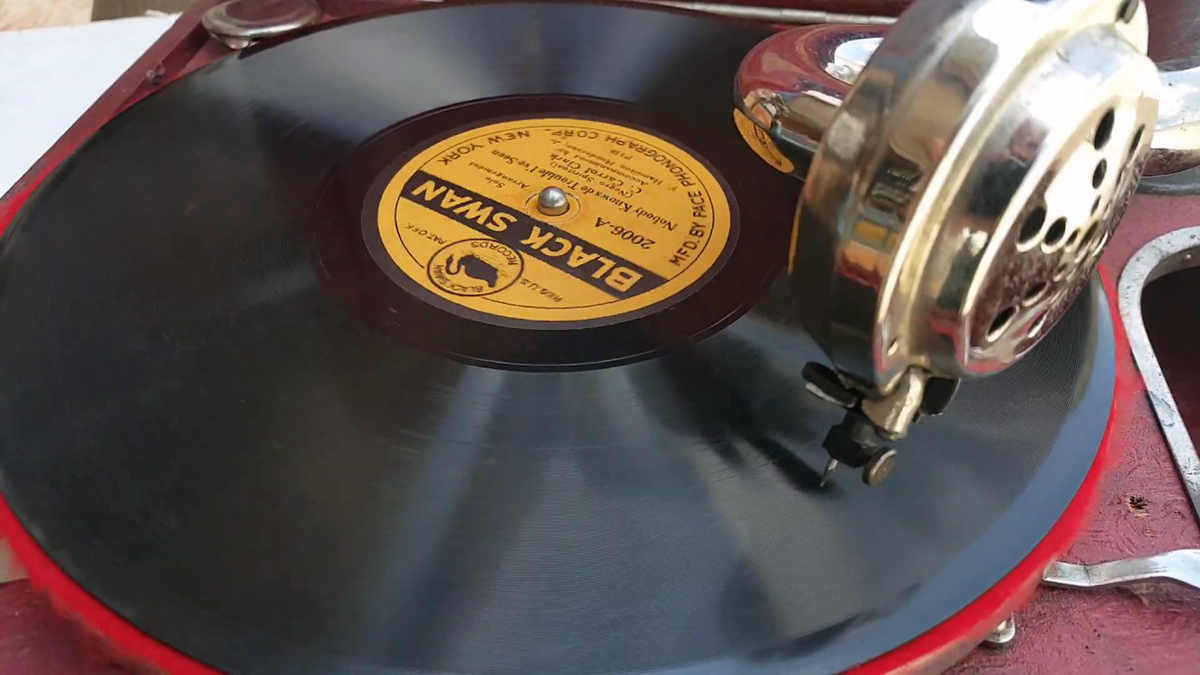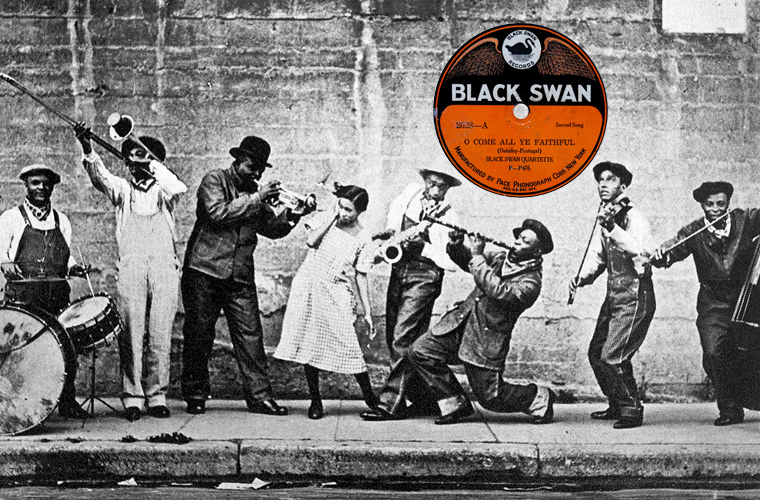Black Swan Records was the first black-owned recording company that sold popular music to black audiences. Black Swan Records specialized in jazz and blues recordings but it also became the first company to record black classical musicians. During its brief existence between 1921 and 1923, Black Swan Records would release over 180 records, a number that far surpassed any subsequent black-owned record company until the 1950s.
Based in Harlem, New York, Black Swan Records was founded in 1921 as the record division of Pace Phonographic Corporation by Harry Pace, a music publisher and former professor of Greek and Latin. Pace named the division after African American opera singer Elizabeth Taylor Greenfield (1809-1976), known as “The Black Swan.” The label’s mission was to serve black stockholders, employees, singers, and musicians. The Black Swan Board of Directors included Dr. W.E.B. DuBois, Dr. Matthew V. Boutte, Dr. Godfrey Nurse, Dr. W.H. Willis, Truman K. Gibson, Viola Bibb, John P. Quander, and John E. Nail.

Bandleader Fletcher Henderson worked as the Black Swan’s recording director and composer while William Grant Still arranged and directed the music. After the release of the Black Swan’s first recording in May 1921, songs such as Ethel Waters’s “Down Home Blues” quickly became successes. Pianist James P. Johnson recorded some of his first solos for the label. Don Redman, Gus and Bud Aikens, Garvin Bushell, Joe Smith, and Ralph Escudero, who all would later become prominent jazz musicians, played back up on many of the label’s recordings. The Black Swan Troubadours, which included Henderson and Waters, toured the South to promote the label’s recordings.
In 1922, Pace made an economic arrangement with the white-owned Olympic Disc Record Corporation. Black Swan Records began to sell white bands but still advertised its dedication to exclusively recording black singers and musicians. Meanwhile larger white-owned record companies began to dominate the market for black artists and cut into the Black Swan’s business. Pace and board member Nail’s public conflict with Marcus Garvey also may have contributed to the company’s decline. In spite of declining revenue, the label continued to record and market classical compositions, which did not sell as well as the label’s blues and jazz recordings.
In December of 1923, Black Swan Records declared bankruptcy, and Paramount bought the label’s catalog the following March. Still, the legacy of Black Swan Records will be its groundbreaking discography and its success in forging an African American presence into the mainstream music business.

